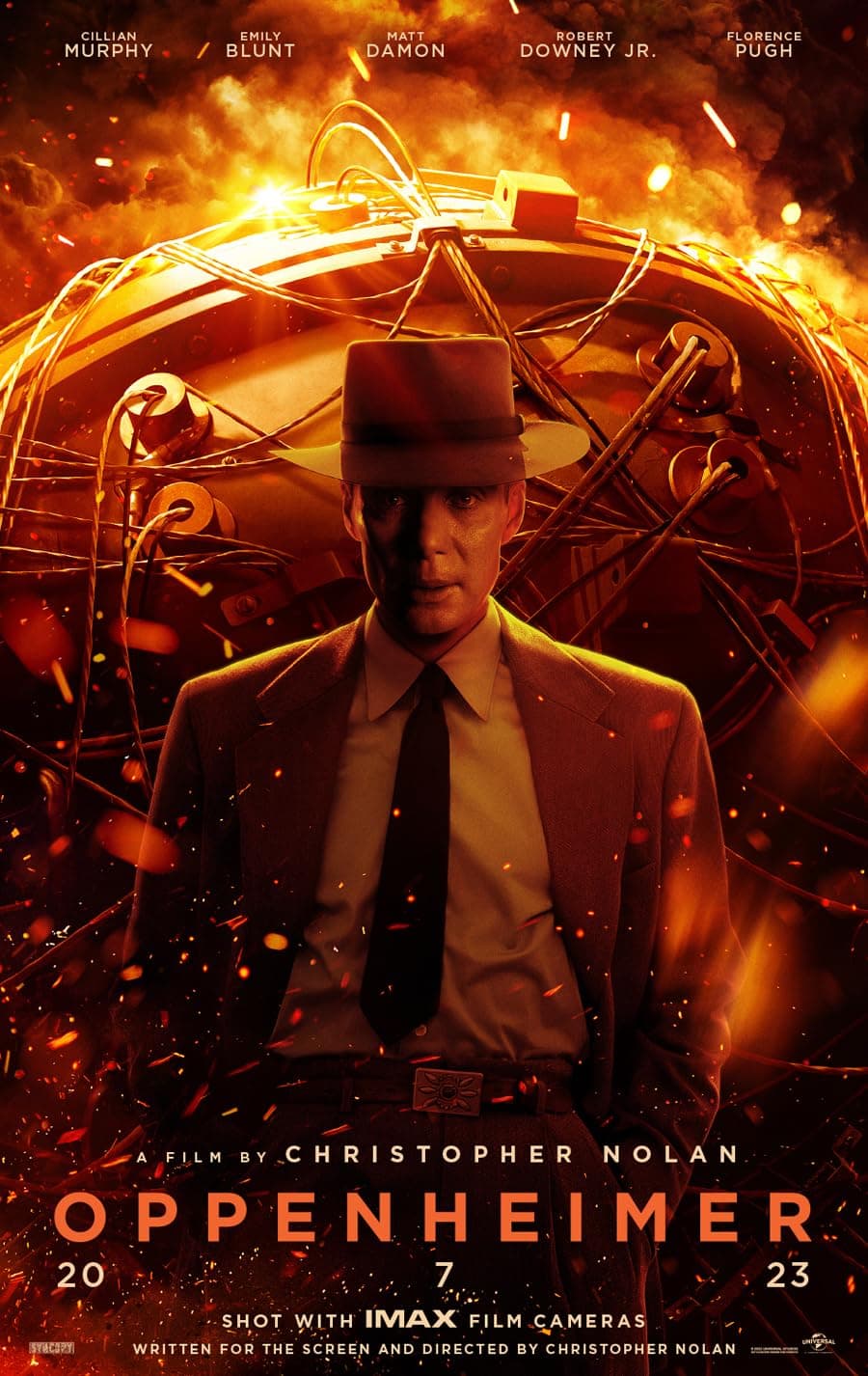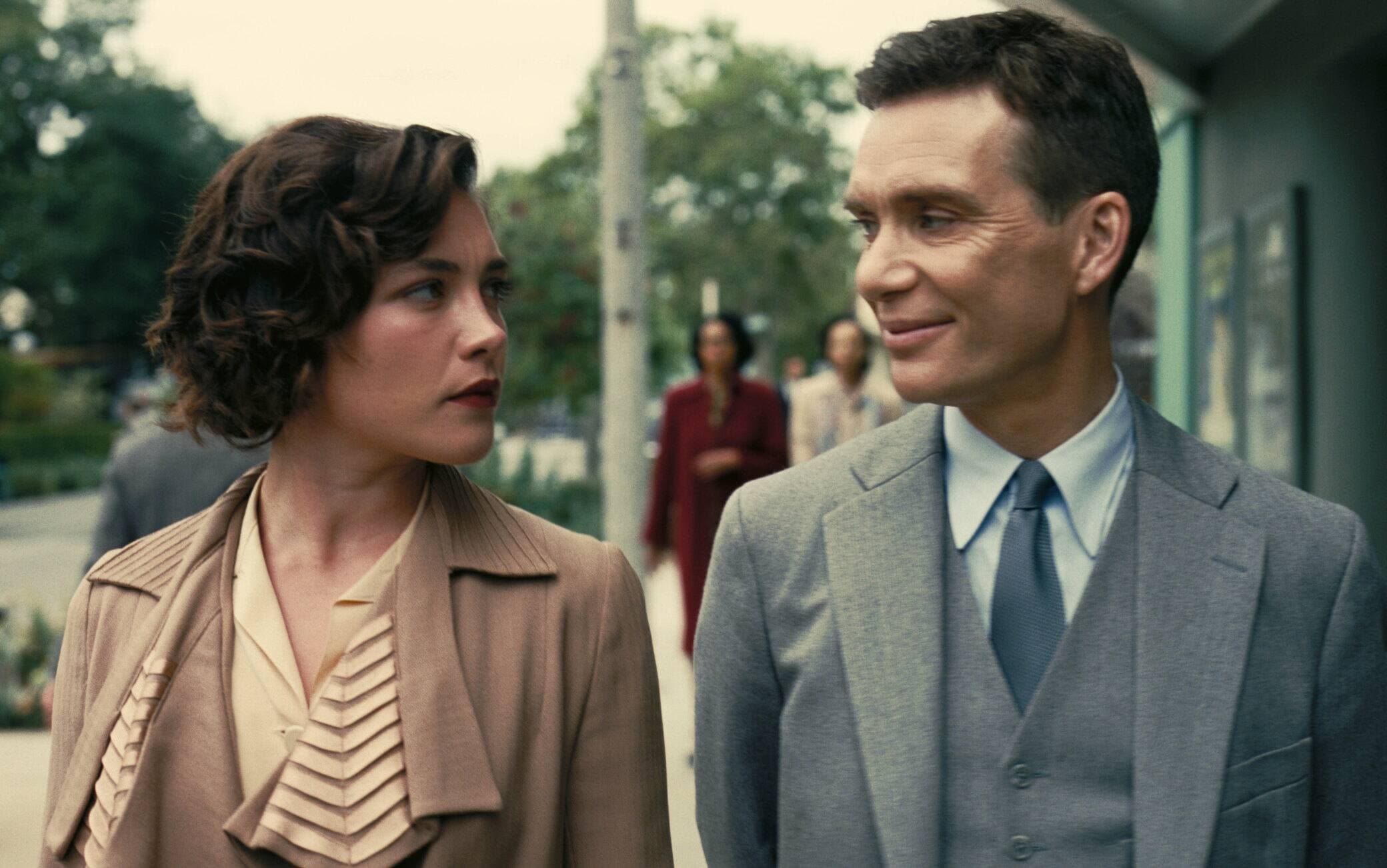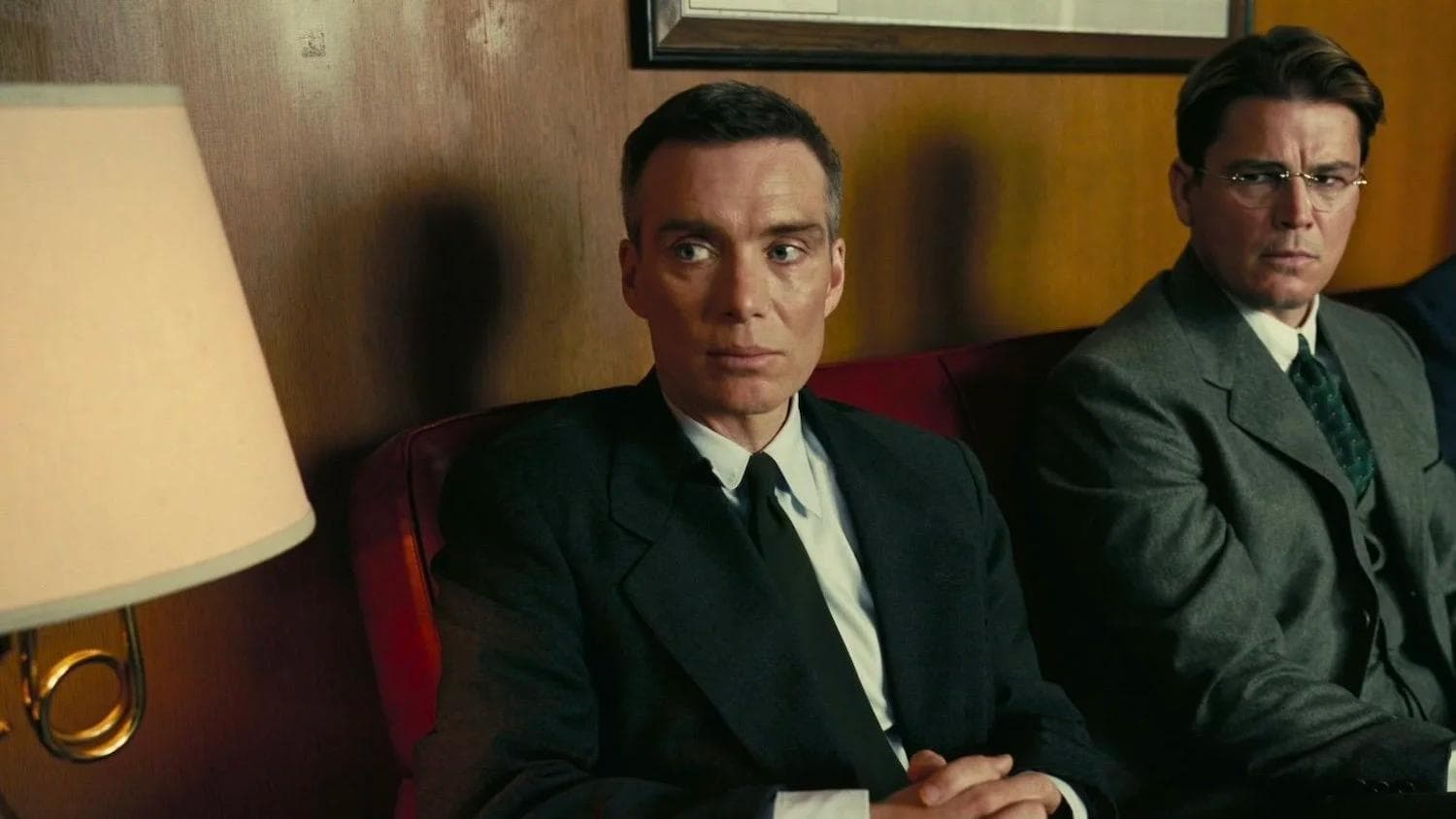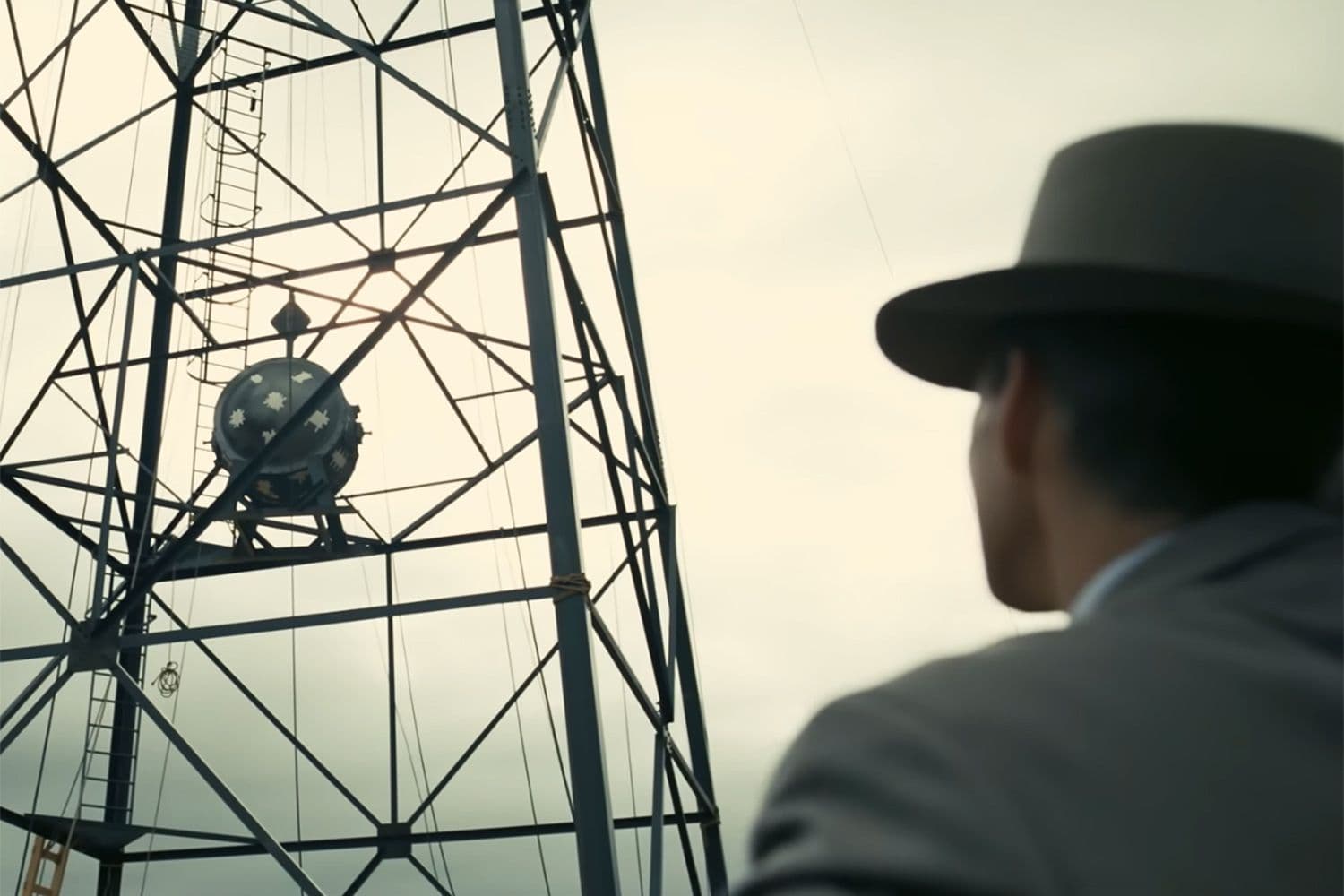
Oppenheimer
2023
Rate this movie
Average: 4.25 / 5
(4 votes)
Director
There are films that depict war from the mud of the trenches, others from the generals' control rooms. And then there is Christopher Nolan's Oppenheimer, which takes a more radical and disturbing approach: it tells the story of World War II from the perspective of an equation on a blackboard, from the surface of a subatomic particle that, once split, will forever divide human history into a ‘before’ and ‘after’. It is not a war film, nor is it a conventional biopic. It is a three-hour psychological-existential thriller, a trial of a man's soul and, with him, that of an entire century.
War, in fact, is told from an oblique and transversal point of view. It is an abstract and omnipresent entity, a background noise that fuels the feverish urgency of the Manhattan Project. Nolan, with a stylistic choice as courageous as it is effective, denies us a view of the battlefield. We don't see soldiers, we don't see fighting. We see theoretical physicists discussing isotopes in a New Mexico desert, we see politicians conspiring in closed, smoke-filled rooms. War is not an event, it is a problem to be solved, an intellectual race against an invisible enemy (the Nazis and their scientists). This approach makes the conflict even more terrifying, because it strips it of all heroism and reduces it to a technological race towards annihilation. The real battle is not in Stalingrad or Normandy, but in the tormented mind of J. Robert Oppenheimer.
It is precisely in the relationship between war and science that the film sinks its sharpest blade, exploring the ethical implications and the figure of the scientist in relation to his time. Oppenheimer is portrayed as a modern Prometheus, a titan of intellect who steals fire from the gods (splits the atom) to give it to men (the US government), only to find himself chained to a rock, devoured not by an eagle but by his own conscience and the petty political machinations of inferior men. His relationships with other great scientists, particularly Einstein, serve as a philosophical counterpoint. Einstein is the old god who has already seen the terrible face of his creation (E=mc²) and now lives in wise and melancholic exile. Their brief conversations are the moments when the film pauses to ask itself: does the purpose of Oppenheimer's work, his desire to overcome the limits of knowledge, coincide with the use that will be made of it? The tragic answer is no. The creator loses control of his creation the moment it is born, and science, from an instrument of understanding, becomes a weapon of power.
The bomb, therefore, is the ambivalent fulcrum of the work. It is the element of annihilation and extermination, but also, in the perverse logic of total war, the means to end war itself. The Trinity Test sequence is the aesthetic and emotional center of the film, a piece of cinema of sublime and terrifying power. Nolan builds an almost unbearable tension that culminates in an explosion of light followed by absolute, almost religious silence. It is the moment when science becomes metaphysical, an act of simultaneous creation and destruction that leaves its own creators speechless, terrified by their own power. The question of whether science is imprisoned by the will of war or progress finds its most ambiguous answer here. In the 20th century, the two became tragically indistinguishable, a two-faced Janus where the pursuit of pure knowledge was inexorably co-opted and financed by the need to build more effective weapons.
All this is orchestrated through Nolan's unmistakable aesthetic, which has reached a mature synthesis here. His cinema evolves, partly abandoning the more explicit puzzle boxes of the past in favor of a narrative architecture that serves the psychology of the character. The non-linear structure, which alternates Oppenheimer's subjective narrative (in color) with the “objective” chronicle of Lewis Strauss's hearing (in grainy black and white), creates a dialectic between memory and history, between personal experience and official record. There is a refined taste in the historical reconstruction, but also a formal perfection that, as always with Nolan, borders on mannerism. Every cut, every note of Ludwig Göransson's hammering score, every shot is controlled with almost mathematical precision. But here, this style, sometimes criticized as cold, is perfectly functional: it depicts a world of calculations, chain reactions, and relentless logic.
In the contemporary cinema landscape, Nolan occupies a unique space, and Oppenheimer is the definitive proof of this. He is an auteur with a singular vision who manages to create complex, intellectual, and highly dialogued works with the budget and scope of a blockbuster. If one were to look for parallels, he could be compared to James Cameron in terms of ambition and scale, but where Cameron pushes the boundaries of technology, Nolan pushes those of narrative structure. Critics, often divided on his work, have found themselves faced with a film whose density and seriousness are undeniable, a film for adults that treats its audience with intelligence.
Finally, the excursus on cinema and war grafted onto Oppenheimer's story shows us a new way of portraying conflict. Oppenheimer does not belong to the combat film genre. It is the apex of a subgenre that we could call the “war film of the mind.” It does not focus on the experience of the soldier, but on that of the creator, the planner, the theorist. It is a drama that unfolds in university classrooms, laboratories, and courtrooms. It is the chronicle of a war fought with quantum physics, whose most devastating explosion is not that of Hiroshima, but the one that takes place, silently and permanently, in the conscience of its creator.
Main Actors
Gallery














Featured Videos
Trailer
Comments
Loading comments...